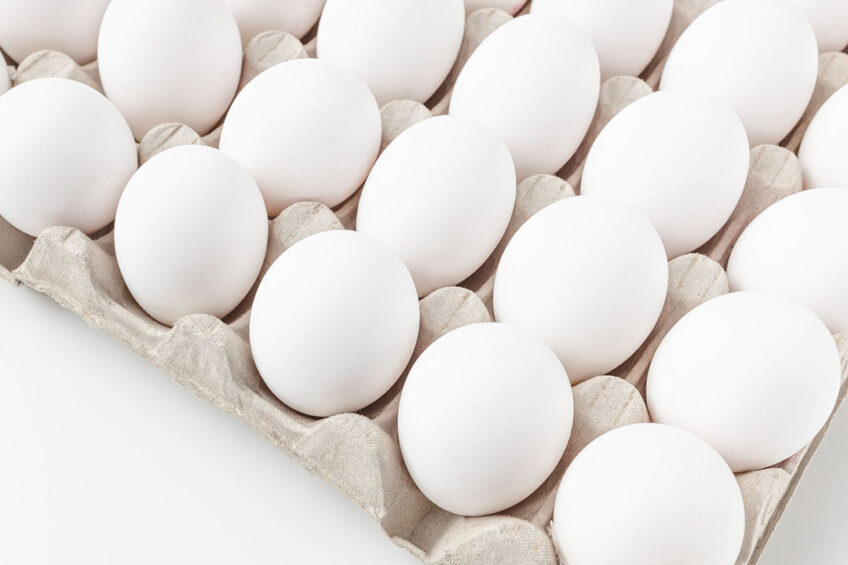Managing white hens in a free-range setting

Normally used in the catering, hospitality and ingredients sectors, white eggs are now increasingly being used by retailers.
Producers at the recent British Free Range Producers Association spoke warmly of their day-to-day experience of managing white birds and their exceptional performance. The Dekalb White offers longer cycles up to 100 weeks and beyond, 500 eggs per cycle, resulting in fewer turnarounds and pullet purchases.
Helen Ridley, who runs 12,000 Dekalb Whites at Talbot Farms, Lincolnshire, said she has chosen the breed for their robustness. She said 93% of the birds were laying at week 21: “They came in so very quickly and birds are currently 35 weeks old and we’ve had just had our 10th week at 97%+, which we’re really pleased with. We’re hoping to keep them to 100 weeks.”
Ridley said the perception was that the birds lay smaller eggs, but she was happy with the average weight of 62.5g. She added that while the UK was still behind Europe in terms of consumption, she hoped they would not be seen as value eggs and that more contracts would be offered to both barn and free-range producers.
A leap of faith
Gordon Alexander, production director of Yorkshire Farmhouse Eggs, said he had decided to move to white birds after viewing a 100-week flock where the eggs and the birds both looked fantastic.
“I think because white eggs have been out of the UK mainstream market for such a long time it was quite a big leap of faith to go in with such large numbers of white until you have actually tried and tested them. But I have found them to be 100% spot on. Our experience with floor eggs has been remarkable. With an average of 16,000 brown birds we would expect to see between 100-250, but we were seeing 25-30 with white birds.”
He said the smothering with the white birds was much easier to control, and he said heading towards 50 weeks, mortality rates were less than 1%, whereas with brown birds you could expect up to 3-4%. “It’s a smaller bird, so she eats less, has a better food ratio and she also lays a slightly smaller egg, which is more sustainable.”
He hopes to keep the birds to 110 weeks and believes that retailers may expand their sourcing of white eggs to 50% of the market.
The Poultry World Newsletter
Sign up for our newsletter and receive all our need-to-know content three times a week.












